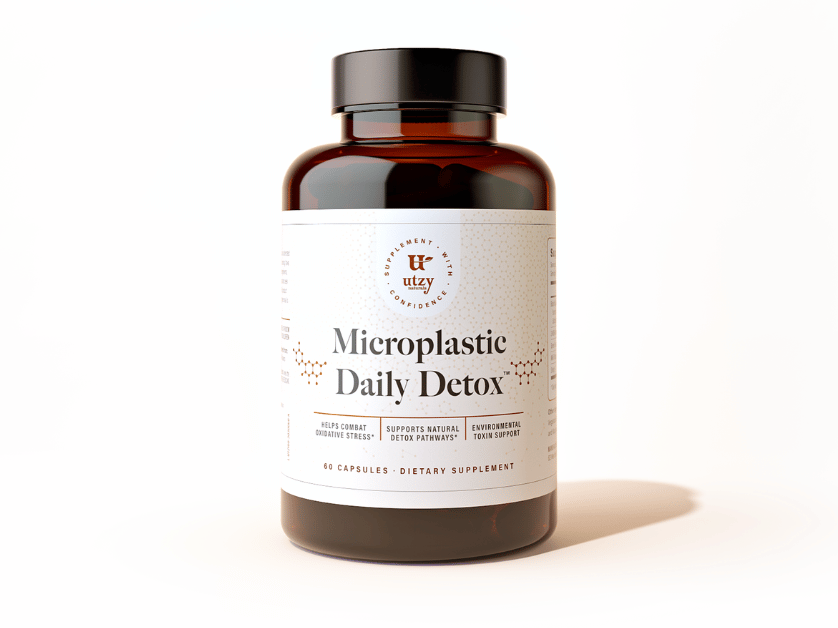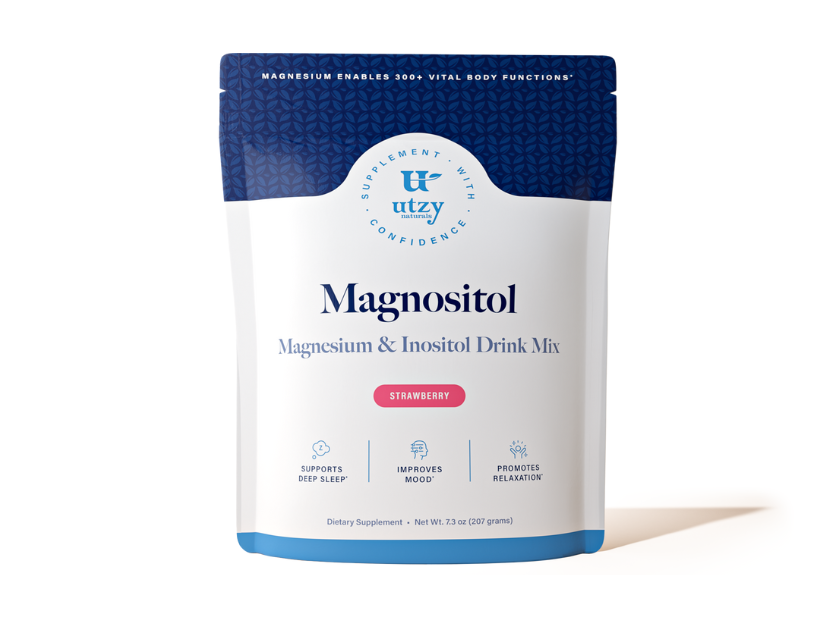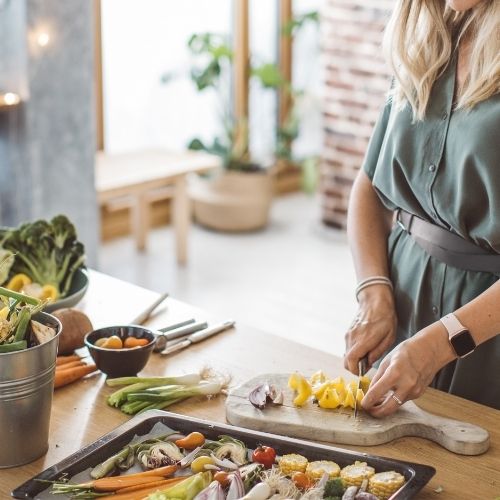shop
learn

Surprising Ways To Sleep Better
July 19, 2024 5 min read
There are times when getting a stellar night’s sleep is not within our control.
However, you may be surprised at a few sleep strategies that are less frequently recommended but that are highly effective at soothing your body toward a solid night’s rest. Here are some helpful ways to sleep better.
1. Calm Your Mind To Sleep Better
Although many of us turn to tangible, physical remedies when dealing with chronic sleep loss, it can be enormously beneficial to remember a few psychological reasons why some of us have trouble sleeping.
For example, Jeff Haden suggests writing down a list of all the things you’re currently worried about. It turns out that writing out your concerns, whether it be in list form or via free-writing or poetry, is surprisingly effective at warding off unnecessary racing thoughts.
Moreover, focusing on the positive, as well as situations within your control—rather than beyond it—will help alleviate stress and is an important way to sleep better.
2. Sleeping Positions To Help You Sleep Better
You are probably familiar with the old trick of turning over onto one’s stomach or back, if your usual sleeping position isn’t working. However, did you know that elevating different parts of the body can be an important way to help you sleep better? Let me explain.
According to Dr. Philip E. V. Van Kerrebroeck, “Even in people who [fall] asleep easily again, the interruption of sleep disrupts the normal sleep patterns and can have general (negative) health consequences…”.
To prevent sleep that’s regularly interrupted by urgent bathroom visits—try putting your feet up before bedtime in order to push accumulated leg and ankle fluids back into the bloodstream so that you can urinate before bedtime, rather than afterwards.
One’s position during sleep, however, is another story altogether. Sleeping with the head and torso elevated has been known to alleviate symptoms of common health complaints (such as indigestion —among other health issues). Try experimenting with different levels of elevation and sleeping positions to see which ones work best for you to help you sleep better.
3. Stretches That Help You Sleep Better
While vigorous exercise helps regulate blood sugar levels and keeps our hearts and stress levels healthy and under control, we should switch into low gear in the hours immediately before bedtime. Certain stretches can be very effective in helping our bodies wind down. Deep breath work and stretching can alleviate stress in not only our lungs, but our legs, necks, and backs as well.
Harvard Medical School recommends implementing what’s known as ujjayi pranayama (victory breath), as well as going into child’s pose, standing forward bend, standing half forward bend, reclining bound angle, and legs up the wall pose (you can see the recommended poses in the linked article).
Another reason why stretching is so effective at improving the quality of our sleep is that, when performed correctly, stretching is essentially a form of mindfulness that ideally brings us to a place that allows our mind to relax, without focusing on external factors.
4. Reduce LED Light For Optimal Sleep
By now, most of us have heard that staring at our smartphones isn’t beneficial when trying to go to sleep. This is because of the prevalence of blue light (LED lights) in computer screen monitors, smartphones, and TV screens. This blue light activates our brains and makes it hard to wind down at night. Do not fear! You may not realize that it’s possible to reduce the amount of blue light in our indoor and outdoor lighting, as well, via the use of LED lightbulbs rather than conventional light bulbs. Additionally, you can also get blue light blocking glasses via our friends at Zenni Optical.
Try to correlate your use of artificial light with your sleep cycles. Although our need for indoor and outdoor lighting of course increases as night approaches, minimizing artificial light is also helpful for birds’ migratory cycles, as well as city stargazing efforts, energy efficiency, and sustainability. Perhaps that’s why excessive use of lights at night is called light pollution: because the excess use of artificial light pollutes the natural world’s ability to function normally—as well as our own.
5. Foods That Help You Sleep Better
Though this may not come as a surprise, decreasing our use of artificial stimulants like tobacco, caffeine, and alcohol can greatly increase our ability to sleep soundly through the night. This is because, although alcohol is a sedative, it’s also a diuretic. And while it initially seems to help alleviate stress, tobacco is a stimulant.
Even though coffee has many benefits, a good rule of thumb regarding caffeine is to avoid drinking coffee or caffeinated tea past four o’clock—while avoiding any caffeine past noon is ideal.
In addition to helping us sleep, avoiding stimulants can help calm your whole body. Try drinking a warm cup of herbal tea or warm milk instead. In addition to what you eat and drink, taking a warm bath or shower before bedtime can also work wonders in helping you relax—in part because it ends up cooling us down after we dry off.
6. Plants And Herbs That Help You Sleep Better
Lastly, a few specific plants have been shown to help improve sleep quality through their presence in the bedroom and throughout the house. One of these, aloe vera, is more well known for its moisturizing and after-sun healing properties. However, aloe vera also emits oxygen at night, which is beneficial to our body’s ability to sleep—as well as improving the general air quality.
Two plants that improve the general air quality of our interior surroundings are snake plants and English Ivy plants—both of which have actually been recognized by NASA as having air-purifying qualities. In addition to that, Lemon Balm Leaf and Valerian Root are two herbs that have long been utilized to make tea as well as in supplements that aid your body in falling asleep.
7. Utilize At-Home Sleep Tests
Many people have found sleep tests to be beneficial for improving sleep quality. Using an at-home sleep test is a great way to determine if there is a more specific cause behind getting poor quality rest, such as sleep apnea. There are many great resources available for easy-to-use sleep tests that you can try in the comfort of your own home. Utilizing tools or apps that monitor your rest may allow you to find what may be negatively affecting your sleep and suggest helpful methods that can be used to ensure you're getting the best night's sleep possible.
* * *
Are there any lesser-known strategies you use to help you sleep better? Share your advice in the comments section, below!
______________________________________________________________________________

Avery Phillips is a freelance human based out of the beautiful Treasure Valley. She loves all things in nature, especially humans. Comment down below or tweet her @a_taylorian with any questions or comments.
Leave a comment
Comments will be approved before showing up.
Also in Utzy Blog

How to Create A Morning Ritual That Will Supercharge Your Productivity
October 31, 2017 4 min read
Read MoreSubscribe
Sign up to get the latest on sales, new releases and more …
Join the Utzy Naturals Club!
Sign up and get the latest on sales, new releases, and more...







